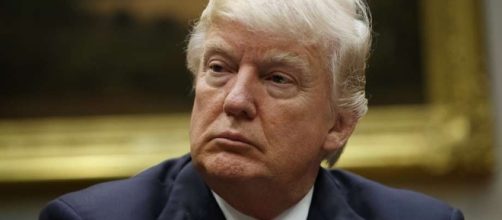So far, the most dramatic thing the Trump administration has done is to conduct its first military strike against a foreign government's airbase, which set off a debate about what it all meant. Within days after the strike, the impact of the action immediately lessened as reports showed that it neither stopped the Syrian government from attacking their own people or did anything more than to irritate Russia. It's even less significant since the administration downplayed its own reason for the strikes by first condemning the Syrian government's chemical attack against its own civilians but then, not wanting to provide a solution to the problem, allowing the strikes themselves be more significant than they are.
On Saturday, following the U.S. military strike on the Syrian airbase, New America fellow Doug Ollivant and political science professor from Columbia University Kimberly Marten were on the PBS Newshour reviewing the administration's actions. Ollivant said that if this were a one-off incident to inform all regimes of the U.S.' zero-tolerance policy against their illegal use of chemical weapons, then it's made that point. But he said that it made little impact on the administration's policy for the Middle East. The overall response by Monday showed that it made little impact to change people's already set perceptions of the administration.
The administration's mixed message
Fast-forward to the Politics Monday segment on the PBS Newshour with NPR's Tamara Keith and Amy Walter of the Cooke Political Report.
Walter said that the President's approval rating hadn't really changed and while many Americans applaud the strikes, ratings suggest that Americans don't really want to see any more strikes in Syria. But Trump and his aides such as Press Secretary Sean Spicer made their arguments elsewhere since the incident based off of the “red line” statement made by President Obama in 2013 after the Assad regime attacked his people with chemical weapons but did nothing.
So far, this is generally seen as the motivator to go after the regime. Secretary of State Rex Tillerson and U.S. Ambassador to the UN Nikki Haley have been outspoken about regime change, but when the White House wasn't saying that wasn't a goal, they weren't saying anything at all.
Pundits have been trying to figure out the President's position since he ordered the cruise missile strike.
On Wednesday, the Wall Street Journal conducted an interview with the President over many issues including the new relationship with Russia over Syria. Gerald Seib who conducted the interview was on Charlie Rose this week where he talked about this, saying that the administration's response would be proportional if there are other chemical attacks, but also suggested they could act if barrel bombs are used. But he said that the President acknowledged that the relationship between the U.S. and Russia is tense. As far as getting rid of Assad, Seib stated that Trump was more explicit about not getting involved with Syria. Tillerson has also said that the focus was to get rid of ISIS first before dealing with the Syrian government.
A distraction from Russia investigation
Before the attack, the focus from the media was over the controversy around House Intelligence Committee Chairman Devin Nunes who appeared to be trying to interfere with their own investigation on Trump's connections to Russia. Even though there have been other chemical attacks from the Syrian government on its own people reported this year, the one against the people of Khan Sheikhoun on Tuesday, April 4, was the one the administration decided to act on. Certainly, statements by the administration leading up to their attack on Friday would provide some new topics to analyze. But the impulsive response on social media after it was reported was that it was an intentional distraction from the investigation into Trump's involvement with Russia.
Previous analysis suggested that President Trump would fall in line with Russia's view of the situation in Syria, meaning that they would defend the Assad regime and perhaps even let Russia take the lead. As mentioned, Haley and Tillerson's view of Russia has been anything but friendly. Tillerson's visit to Moscow on Tuesday was expected to be tense, and before that visit, it was reported that Russian President Vladimir Putin has “deepened” his support for the Assad regime. He compared the U.S.'s military response with that of President Bush in 2003 when he accused Saddam Hussein of having chemical weapons. This turned out to be a lie created by the administration as an excuse to start a war in Iraq.
Putin even said that his intelligence showed that anti-Assad rebels are planting chemical weapons near Damascus for the U.S. to have an excuse to attack again. What is true is that there's little discussion of the Russian investigation now and more about his relations with China from Russia. But there's very little to indicate that President Trump has any desire to achieve some foreign policy agenda and is only making it up along the way.

